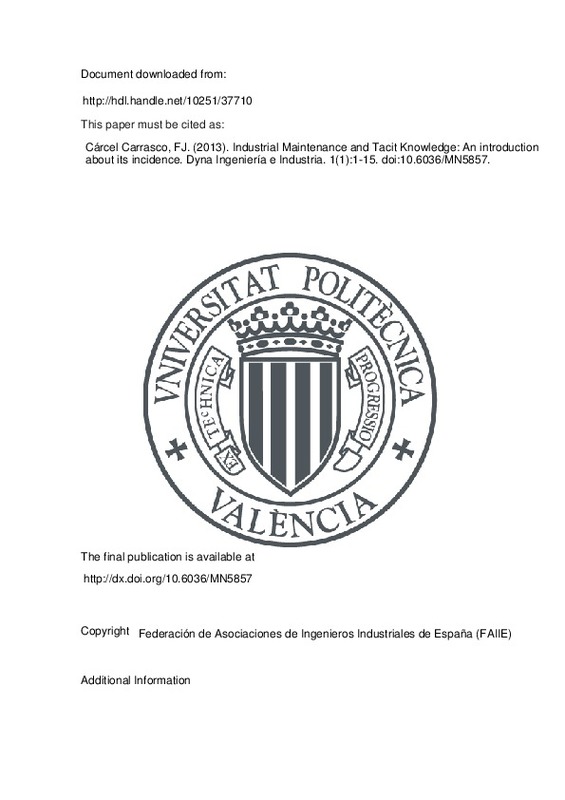JavaScript is disabled for your browser. Some features of this site may not work without it.
Buscar en RiuNet
Listar
Mi cuenta
Estadísticas
Ayuda RiuNet
Admin. UPV
El mantenimiento industrial y el conocimiento tácito: una introducción sobre su incidencia
Mostrar el registro completo del ítem
Cárcel Carrasco, FJ. (2013). El mantenimiento industrial y el conocimiento tácito: una introducción sobre su incidencia. Dyna Management. 1(1):1-15. doi:10.6036/MN5857
Por favor, use este identificador para citar o enlazar este ítem: http://hdl.handle.net/10251/37710
Ficheros en el ítem
Metadatos del ítem
| Título: | El mantenimiento industrial y el conocimiento tácito: una introducción sobre su incidencia | |
| Otro titulo: |
|
|
| Autor: | ||
| Entidad UPV: |
|
|
| Fecha difusión: |
|
|
| Resumen: |
[EN] Industrial maintenance, has been studied with great remark in the processes of decision of tangible items, in order to reduce the rate of failure of these technical elements, however there is an element, often forgotten, ...[+]
[ES] El mantenimiento industrial, se ha estudiado con gran puntualización en los procesos de fallo de los elementos tangibles, con el fin de reducir la tasa de fallo de dichos elementos técnicos, sin embargo existe un ...[+]
|
|
| Palabras clave: |
|
|
| Derechos de uso: | Reserva de todos los derechos | |
| Fuente: |
|
|
| DOI: |
|
|
| Editorial: |
|
|
| Versión del editor: | http://dx.doi.org/10.6036/MN5857 | |
| Tipo: |
|







![[Cerrado]](/themes/UPV/images/candado.png)


